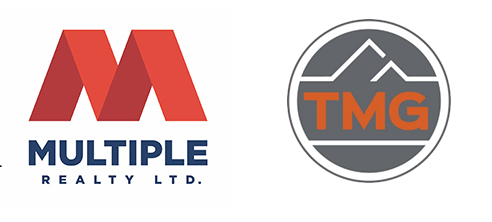I have...
Selling An Investment Property: The Complete Guide to Selling your Vancouver Investment Property
Thinking of selling your Vancouver real estate investment? BC Tenanted properties come with unique challenges when selling. Here’s what you need to know.
Selling your investment property is different than selling your primary home. Read on to find out your responsibilities as a BC Landlord and get tips on getting the maximum amount of money for your property.
Contents:
![]() Selling Your Vancouver Investment Property: BC Tenant Rights & Obligations
Selling Your Vancouver Investment Property: BC Tenant Rights & Obligations
![]() When Should You Sell Your Vancouver Investment Property? Timing Considerations
When Should You Sell Your Vancouver Investment Property? Timing Considerations
![]() Staging Your Investment Property
Staging Your Investment Property
![]() Showings Requirements for Selling Tenanted Properties in BC
Showings Requirements for Selling Tenanted Properties in BC
![]() Other Selling Considerations for Vancouver Landlords
Other Selling Considerations for Vancouver Landlords
FAQ for Landlords Selling an Investment Property in Vancouver
Selling Your Vancouver Vancouver Investment Property: BC Tenant Rights and Obligations
If your tenant is under a BC Tenancy Lease Agreement, the tenant has a right to stay under the BC Tenancy Act. It doesn’t matter if a new owner wants to move in, in BC the lease obligations transfer to the new owner until the end of the lease term.
If your tenant is on a month-to-month lease, the new owner may move into their space with a minimum 60 days written notice (from the first of the month) must be provided and the new owner must occupy the space themselves, you can’t simply kick the tenant out and rent it to someone else.
Tenant Cooperation in BC– Provided 24-hour notice has been provided to the Tenant, they must cooperate with the Landlord for showings(whether they are in a lease or not). They can not insist that they must be home for showings. If they do not, the Seller can claim damages and/or proceed with an eviction.
Return to Content Menu ![]()
When Should You Sell an Investment Property? Timing Considerations
Listing? When should list your tenanted property for sale? Should you list it while your tenant has a lease in property, at the end of their lease or wait until they give notice that they are leaving? Timing the sale of your investment property depends on a few different things.
Your Target Buyer- If your target Buyer is an investor, the fact that there’s a tenant already in place, and a known rate of return may be a benefit to the Buyer. Of course, if you aren’t charging your tenant market rent, that will be a deterrent to investors particularly in BC where every dollar counts. If your target Buyer is an end-user, someone who will move into the unit themselves, then you’ll want to time the listing of the property towards the end of their lease. Remember that once an agreement of purchase is in place, you can provide 60 days notice to the tenant make sure however this request is made in writing, your Agent should know tenancy rights to make sure this is done correctly (from the 1st of the month) on behalf of the new Buyer, if they (or their immediate family member) will be moving into it. For example, if the lease ends on October 1st, you could give notice on behalf of a new Buyer as late as August 1st. If condos in your building take an average of 30 days to sell, then you’d probably want to target a listing date of June or July. That way, if your tenant is in a month-to-month lease, you’ll be able to target effectively both investors and end-users and be able to maximize your exposure.
Personal Goals - Your personal financial goals need to be considered when timing the sale of an investment property in Vancouver. Do you need the equity for other reason? Is your mortgage up for renewal and you want to take advantage of the timing? How would your taxes be affected by a sale? These and many other questions are important to be answered before considering to sell.
The Current Market – What is currently happening in the real estate market? Are values in your building or neighbourhood increasing or decreasing what is the potential? Should you lock in your returns and move on? What’s happening to interest rates? Is it a good time to sell?
Keep in mind that under the BC Tenant Act, you cannot ask your tenant to leave because you want to sell, if they are in a long term Tenancy agreement OR if they are month-to-month tenants. If you wait until your tenant gives notice before selling your property, you could be waiting for years , so it’s important you make the right decision that works for you.
Showing and Staging Your Investment Property
As a Vancouver landlord, you don’t have the right to stage your tenant’s apartment just because you want to sell. Also you can’t force your tenant to rearrange their furniture, take down their personal photos or even just keep it clean. Of course, how well a property is presented impacts price and how long it takes to sell so it’s important to work with your tenant. Here are a few strategies to getting cooperation from your tenant and making it a win-win.
In my experience, most tenants are friendly to their landlord sending in a cleaning service before the property gets listed , who doesn’t want someone else to clean their home? I’m Sold.
You have the right to repair anything that isn’t working, give the walls a fresh coat of paint, change the light fixtures or wash the carpets.
Having a good relationship with your tenants, or allowing your real estate agent to build a positive relationship with them is encouraged this will go a long way to helping the sale of your home. Happy tenants will be more open to de-cluttering and preparing their apartment. A fast sale is to your tenants’ benefit too and many times a new investor may keep them if they see they are good tenants, this is something I always explain to tenants when selling their home.
How to Market a Tenanted Property for Sale
The reality is It can be more difficult to market a tenanted property. Depending on your Tenant (if they are messy), photos or high end marketing might work against you. Tenants are often not very accommodating with open houses, so reaching potential buyers can be more difficult. A good agent will market your home online and will have a pool of investment Buyers they are working with to overcome some of the marketing challenges of selling a tenanted property. I have sold many tenanted properties over the years, you will need experience and certain finesse to keep everyone happy, and that is the key.
Showings Requirements for Selling Tenanted Properties in BC
You can show the property to potential Buyers between 8 AM and 8 PM, provided appropriate notice of 24 hours is given. While it may not be convenient for a Tenant, it is your right. Don’t let your tenants intimidate you into restricted showing times, but always be respectful of the tenant again it’s about making it work for everyone. A supportive tenant will go a long way to making the sale happen faster. The 24 hour notice requirement means that you’ll miss out on last-minute showings, but with so many investment properties in Vancouver that this isn’t unusual for potential buyers to understand.
Best case scenario, your tenant will leave their apartment during a showing, but again, this isn’t something that you can require or force a tenant to do. We’ve shown properties where hungover tenants stayed in bed during the entire showing! A simple request from your tenant might resolve this obstacle, and working with them is important.
I always like to work with tenants and their schedule, if your Tenant has provided you with notice that they are leaving, the BC Landlord & Tenant Act requires that the Landlord make reasonable efforts to provide notice of a showing.
Return to Content Menu ![]()
Selling Considerations for Landlords
When thinking of selling an investment house or multi-unit dwelling soon, it is important not to sign or extend tenancy agreements. You will get a higher price for your house if you are targeting both investors and end-users who want to live in one of the apartments themselves. Having a vacant apartment is an attractive feature for many Buyers so they can decide what to do.
If you’re NOT thinking of selling soon, increase your rents every year to try and keep good rental value. The amount of rent your Tenant pays will directly impact the sale price of your house.
Because the lease transfers with the property, a Tenant who is paying below-market rent will mean the new owner will take in less income than they would with a comparable property, and that will make your house less valuable. Always charge market rent to a new Tenant, and always increase rents annually by the amount allowed by law.
Return to Content Menu ![]()
Landlords FAQ when Selling an Investment Property in BC
I just signed a new 12-month lease a few months ago. Can I sell the property now?
You can sell your investment! However note that the BC Tenancy Act requires that the new Buyer of the Property assume the Tenant and the lease, at the end of the original lease the new Buyer may give 60-days notice to vacate if they want to occupy the property themselves according to the tenancy rules.
Can I take photographs of the property for marketing purposes?
Of course, yes you have a right to take photographs. It’s good practice to ask the Tenant to remove any personal belongings they don’t want to be photographed in advance of the photographer’s arrival.
I want to do some renovations before selling my investment property. Can I evict the Tenant?
No you cannot. Rules about renovating in BC are complicated, let us help you navigate this changing landscape.
Can I pretend I am moving into the unit myself in order to evict the Tenant and then put it up for sale?
This is a serious violation under the BC Tenant Act. Bad faith evictions come with penalties so do things right.
My Tenant doesn’t want showings before 10:30 AM or after 5:30PM. What should I do?
The Tenant’s obligations require cooperation for showings between 8 AM and 8 PM. You can choose to work with your Tenant if there’s a valid reason for their request (eg – they work until 4 AM and sleep until noon) – but you are under no obligations to be flexible.
How do I evict my Tenant so I can sell my property?
Under British Columbia laws, you can not evict a Tenant or ask them to move out. The new Buyer inherits the Tenant and the lease. If the Tenant is on a month-to-month lease vs a fixed-term lease agreement, the new Buyer can provide 60 days written notice if they are going to occupy the home themselves. Often, in these cases, the Seller provides the required notice on behalf of the new Buyer. Make sure all these notices are done correctly. If you have property management questions feel free to contact us or give us a call, we will give you up to date BC Tenancy information.





